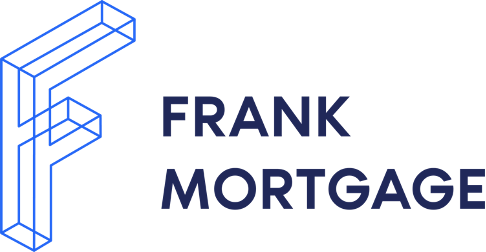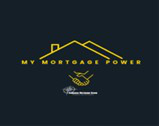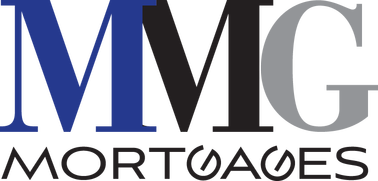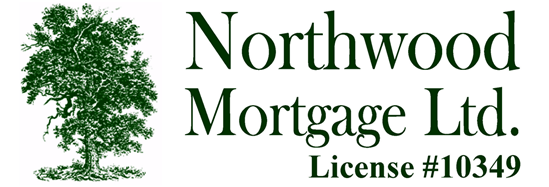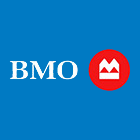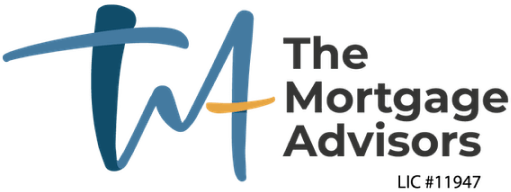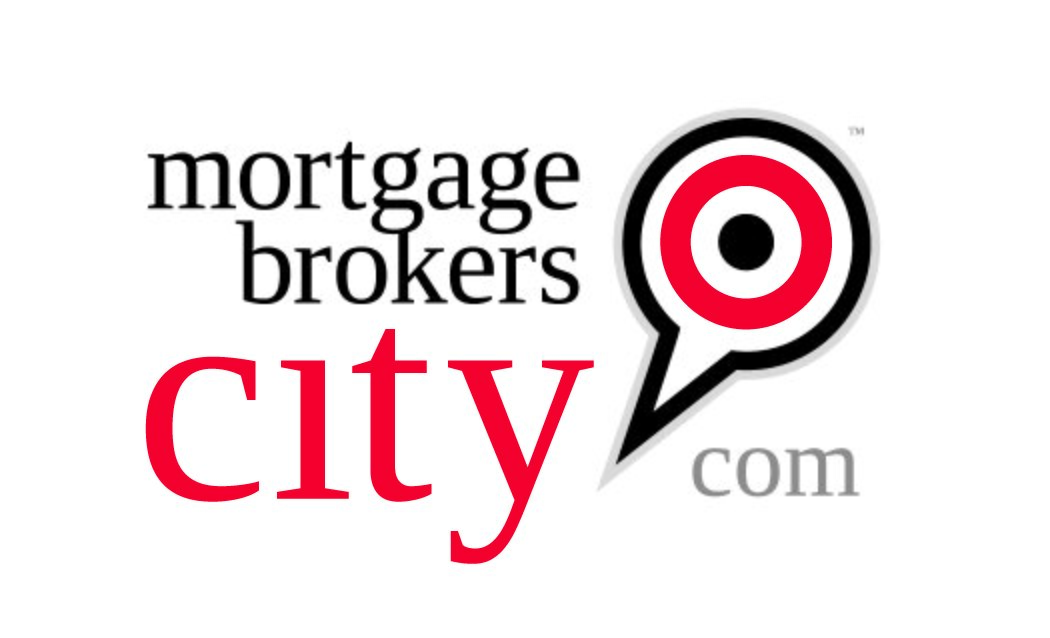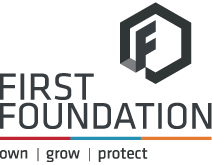Find the Best Fixed Mortgage Rates in Canada
Compare the best fixed mortgage rates from major banks, credit unions and mortgage brokers.
Compare best fixed mortgage rates from lenders across Canada



Today's Best Mortgage Rates in Canada
Evaluate Canada’s best mortgage rates in one place. You can compare the most current mortgage rates and monthly payments from 175+ banks and lenders across Canada.
Rates are based on an average mortgage of $500,000 and subject to change based on filter criteria.
| Lender
|
Insured
|
Insurable
|
Uninsured
|
|---|---|---|---|
|
Frank Mortgage
|
3.79%
$2,573.49 / month
|
3.99%
$2,627.39 / month
|
3.89%
$2,600.37 / month
|
|
Compass Mortgage Group oa My Mortgage Power
|
3.89%
$2,600.37 / month
|
3.99%
$2,627.39 / month
|
3.89%
$2,600.37 / month
|
|
MMG Mortgages
|
3.94%
$2,613.86 / month
|
4.14%
$2,668.19 / month
|
3.94%
$2,613.86 / month
|
|
Northwood Mortgage Ltd.
|
4.19%
$2,681.85 / month
|
4.49%
$2,764.59 / month
|
4.19%
$2,681.85 / month
|
|
BMO
|
4.25%
$2,698.30 / month
|
4.47%
$2,759.03 / month
|
4.47%
$2,759.03 / month
|
|
Innovation Federal Credit Union
|
4.49%
$2,764.59 / month
|
4.49%
$2,764.59 / month
|
4.49%
$2,764.59 / month
|
|
Gibson Mortgages
|
4.99%
$2,905.18 / month
|
4.44%
$2,750.71 / month
|
4.29%
$2,709.29 / month
|
|
True North Mortgage
|
2.99%
$2,363.66 / month
|
2.99%
$2,363.66 / month
|
2.99%
$2,363.66 / month
|
|
Hypotheca
|
3.74%
$2,560.11 / month
|
3.74%
$2,560.11 / month
|
3.74%
$2,560.11 / month
|
|
Monster Mortgage
|
3.79%
$2,573.49 / month
|
3.79%
$2,573.49 / month
|
3.79%
$2,573.49 / month
|
|
DUCA Financial
|
3.79%
$2,573.49 / month
|
3.79%
$2,573.49 / month
|
3.79%
$2,573.49 / month
|
|
Nesto
|
3.84%
$2,586.91 / month
|
3.84%
$2,586.91 / month
|
3.84%
$2,586.91 / month
|
|
The Mortgage Advisors
|
3.87%
$2,594.98 / month
|
3.87%
$2,594.98 / month
|
3.87%
$2,594.98 / month
|
|
City Wide Financial Corp
|
3.89%
$2,600.37 / month
|
3.89%
$2,600.37 / month
|
3.89%
$2,600.37 / month
|
|
Interior Savings
|
3.89%
$2,600.37 / month
|
3.89%
$2,600.37 / month
|
3.89%
$2,600.37 / month
|
|
Mortgage Brokers City Inc
|
3.94%
$2,613.86 / month
|
3.94%
$2,613.86 / month
|
3.94%
$2,613.86 / month
|
|
First Foundation
|
3.94%
$2,613.86 / month
|
3.94%
$2,613.86 / month
|
3.94%
$2,613.86 / month
|
Best Fixed Mortgage Rates in Canada
Evaluate Canadas best fixed mortgage rates in one place. RATESDOTCAs Rate Matrix lets you compare pricing for all key mortgage types and terms.
Rates are based on an average mortgage of $500,000 and subject to change based on filter criteria.
Updated 00:49 on May 06, 2025| Placeholder |
Insured
The rates in this column apply to borrowers who have purchased mortgage default insurance.
This is required when you purchase a home with less than a 20% down payment.
The home must be owner-occupied and the amortization must be 25 years or less.
|
80% LTV
The rates in this column apply to mortgage amounts between 65.01% and 80% of the property value. The home must be owner-occupied and have an amortization of 25 years or less. You must have purchased it for less than $1 million. These rates are not available on refinances. Refinances require "Uninsured" rates.
|
65% LTV
The rates in this column apply to mortgage amounts that are 65% of the property value or less. The home must be owner-occupied and have an amortization of 25 years or less. You must have purchased it for less than $1 million. These rates are not available on refinances. Refinances require "Uninsured" rates.
|
Uninsured
The rates in this column apply to purchases over $1 million, refinances and amortizations over 25 years. More info on the differences between insured and uninsured rates.
|
Bank Rate
Bank Rate is the mortgage interest rate posted by the big banks in Canada.
|
|---|---|---|---|---|---|
| 1-year fixed rate | 4.99% | 4.69% | 4.69% | 5.59% |
5.49%

|
| 2-years fixed rate | 3.89% | 4.19% | 4.19% | 4.70% |
4.79%

|
| 3-years fixed rate | 3.79% | 3.79% | 3.79% | 4.09% |
4.39%

|
| 4-years fixed rate | 4.29% | 4.15% | 4.15% | 4.44% |
4.29%

|
| 5-years fixed rate | 3.79% | 3.84% | 3.89% | 3.84% |
3.99%

|
| 7-years fixed rate | 5.19% | 5.00% | 5.00% | 5.19% |
5.00%

|
| 10-years fixed rate | 5.24% | 5.29% | 5.29% | 5.29% |
6.09%

|
| 3-years variable rate | 4.40% | 4.30% | 4.30% | 4.40% |
6.35%

|
| 5-years variable rate | 4.00% | 4.04% | 4.04% | 4.05% |
4.25%

|
| HELOC rate | N/A | N/A | N/A | N/A |
N/A
|
| Stress Test | 5.25% | 5.25% | 5.25% | 5.25% |
N/A
|
*Rates are based on a $300,000 mortgage.



*Rates are based on a $300,000 mortgage.



*Rates are based on a $300,000 mortgage.
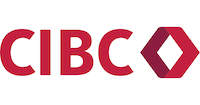


*Rates are based on a $300,000 mortgage.



*Rates are based on a $300,000 mortgage.



*Rates are based on a $300,000 mortgage.



*Rates are based on a $300,000 mortgage.
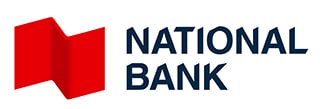


*Rates are based on a $300,000 mortgage.



*Rates are based on a $300,000 mortgage.



*Rates are based on a $300,000 mortgage.
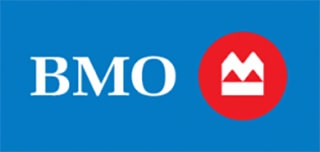


*Rates are based on a $300,000 mortgage.



*Rates are based on a $300,000 mortgage.



*Rates are based on a $300,000 mortgage.



*Rates are based on a $300,000 mortgage.



Fixed mortgage rates
Home buyers generally choose from two main types of mortgages: fixed and variable.
A fixed mortgage—particularly the 5-year fixed—has historically been the most popular option in Canada, particularly among first-time buyers and in rising-rate environments.
That’s because fixed rates provide cost stability – i.e., keep the borrower’s regular mortgage payments fixed for the duration of their mortgage term.
Variable, or “floating” rates, on the other hand, can increase or decrease during the mortgage term. Those changes track fluctuations in the prime rate, to which variable rates are tied.
One notable exception is the fixed-payment variable-rate mortgage. Rather than the monthly payment rising when prime rate increases, the borrower will instead see less of their monthly payment going towards principal and more going towards interest. The inverse is true when rates fall.
Types of fixed mortgages
There are two types of fixed and variable rates: open and closed.
Closed fixed mortgage: A closed mortgage involves a regular repayment schedule that typically only allows limited prepayment options. Most lenders let you make extra payments of 5% to 30% of the original loan amount in any given year. Many also permit a similar once-a-year increase to your monthly mortgage payments.
Open fixed mortgage: Just like a closed mortgage, there is a regular payment schedule set out for the borrower, except it involves far more flexible options to pay down the mortgage. Those with an open mortgage can increase their regular payments or make lump-sum prepayments of any amount and at any time without penalty. Open fixed mortgage rates are typically over two percentage points higher than closed mortgage rates due to this flexibility.
Fixed mortgage terms
Here’s a rundown of the most common fixed-rate mortgage terms…
6-month fixed: Within fixed mortgages consumers can opt for closed or open mortgages. A 6-month fixed closed mortgage rate, while being the least flexible rate, can offer peace of mind to the borrower. It allows you to lock in a mortgage rate so that it remains unchanged during the 6-month term and offers a fixed payment schedule that does not fluctuate.
1-year fixed: One-year fixed rates have one of the shortest commitment periods of any mortgage term other than a 3- or 6-month fixed. That’s why they occasionally have the lowest rates on the market, even lower than variable rates at times. Only about 5-6% of Canadian mortgage shoppers choose a 1-year fixed term.
2-year fixed: Two-year terms can be a useful alternative to the 1-year term for those wanting upfront interest rate savings, but who don’t want to deal with renewing their mortgage every 12 months. The 2-year fixed sometimes offers a good balance between short-term rate savings and medium-term rate stability. Yet, only about 1 in 14 rate shoppers choose a 2-year fixed.
3-year fixed: Considered a “middle of the road” mortgage, 3-year fixed terms provide longer payment stability compared to shorter one- and two-year products, but don’t require as much of a commitment as the ever-popular 5-year fixed. About 7% of homebuyers choose this term.
4-year fixed: This is a generally unpopular term length, even though it has the potential to be the perfect “goldilocks” term for certain borrowers by balancing competitive rate with an appropriate duration. That’s because the average 5-year fixed borrower breaks their mortgage after only 3.8 years, resulting in many having to pay (often significant) prepayment penalties. Just 1 in 16 Canadian borrowers (6%) of Canadian borrowers choose for a 4-year term on average.
5-year fixed: This has long been Canada’s mortgage darling. Over half of Canadian borrowers choose this term, depending on the year. It’s a popular term because it strikes a balance between a competitive mortgage rate and a term length that gives borrowers confidence and budgetary stability.
7-year fixed: This is one of the least-chosen terms among Canadians, with just 1% of borrowers opting for a 7-year rate. That’s because it offers little additional rate protection compared to the 5-year fixed, but is typically priced significantly higher. It also has a punitive penalty if broken before 60 months have elapsed.
10-year fixed: A decade of rate stability can be both a blessing and a curse. On the one hand, if you’re able to snatch a 10-year mortgage at record-low rates, as they were in late 2020 and early 2021, you’re guaranteed 10 full years of rate stability. That’s attractive, knowing interest rates are sure to increase at some point over that time span. The problem is, 10-year rates aren’t typically priced as attractively as 5-year terms. In other words, their “break-even” point is high, so you have to believe rates could increase significantly. Moreover, should you need to break your mortgage within the first five years of the term, you could face extreme breakage penalties. After five years, the prepayment penalty is limited by law to just three months’ interest. Only about 1 in 20 borrowers choose a 10-year fixed rate mortgage.
Fixed mortgage pros and cons
Both fixed and variable rates come with pros and cons. Here are some that pertain to fixed rates…
Pros
- Peace of mind. If you’re likely to lose sleep when interest rates start rising, a fixed mortgage will provide years of stability. You’ll know exactly what your monthly mortgage payment is going to be for the full ride.
- Competitive rates. The advantage between fixed and variable rates often shifts depending on the economic conditions of the day. Throughout the latter half of 2020 and into 2021, borrowers enjoyed historically low fixed rates, in some cases priced just slightly higher than comparable variable rates. Bank of Canada's 10 rate hikes in one year since Q2 2022 have made variables costlier (compared to a fixed), so it’s not surprising most mortgage shoppers are seeking the security and stability of fixed terms.
Cons
- Costly breakage penalties. One of the biggest downsides to locking into a fixed rate is the penalty many borrowers face, should they need to break their mortgage early. There are plenty of headline-grabbing stories about homeowners who were charged five-figure “interest rate differential” (IRD) penalties to break their mortgage before maturity. Variable mortgages don’t have IRD penalties. With that said, if you want to protect yourself from potential future penalties, you can always choose a fair-penalty lender. That’s one that charges an interest penalty just big enough to cover its costs if you break the contract early. This sure beats a big-bank IRD penalty that can run as high as $10,000, $20,000 or more, depending on your loan amount and rates.
- Locked in for five full years. While some people see a 5-year term as an advantage, it can quickly become a disadvantage should you need to break your mortgage early. While it’s always good to plan for your future, life happens. Shorter terms can sometimes help you time your exit from the mortgage to coincide with your maturity date, thus avoiding a penalty.
Frequently asked questions about fixed mortgage rates
Main factors you consider when it comes to choosing what type of mortgage you want.
What else should I budget for besides the mortgage?
Aside from obvious upfront costs such as your down payment and ongoing monthly mortgage payments, there are a few other closing costs you should be prepared for when buying a home.
- Land transfer tax: This is often one of the largest upfront expenses when purchasing a home. Most property purchases in Canada are subject to a land transfer tax, with the exception of Alberta and Saskatchewan. The amount varies by jurisdiction. You can use our Land Transfer Tax Calculator to calculate this cost for homes in your area.
- Home insurance: Also known as property insurance, this covers your home in the event of unexpected damages, such as flood or fire. While home insurance isn’t mandatory in Canada, it’s strongly recommended, as most lenders won’t consider a mortgage without proof of home insurance. Compare home insurance quotes with us to find the best deal.
- Property taxes and utilities: These are the ongoing costs of maintaining your home. The amount varies by municipality and utility provider.
- Home renovations/repairs: You may love nearly every aspect of your new home, except potentially a dated bathroom, awful room colours or unfinished basement, just to name a few examples. Your new property may also require some minor (or not-so-minor) repairs before you can truly settle in. Budget carefully for these expenses, as renovation costs can climb quickly. If you’re renovating for accessibility reasons, you might be eligible for the Home Accessibility Tax Credit (HATC) on qualifying expenses or goods made while renovating.
- Furnishings: This is a cost that is often overlooked by buyers, and can be most impactful for first-time buyers who suddenly find themselves with an entire home or condo that needs to be filled with furniture, appliances, window coverings, etc.
Does my credit score have an effect on getting pre-approved for a mortgage?
Your credit score can be the most important factor in determining whether you can get a pre-approval, and for how much. Lenders want to know that you will repay your debt, so they consider the following factors: payment history, outstanding debt, credit history age, applying for new credit too often and the type of debt you are looking for (long-term debt vs. short-term debt).
Credit scores range from 300 to 900, with 750 being in the “excellent” category. Most lenders require a score between at least the 600-700, but the higher your score, the lower the interest rate you'll be able to negotiate.
What is the mortgage stress test?
Anyone obtaining a mortgage must prove they can handle payments at a higher rate than their actual mortgage rate, in the event rates rise in the future.
There are currently two variations of the stress test in effect, depending on whether your mortgage is default insured or uninsured. Both are based on the benchmark qualifying rate:
- Default-insured mortgages (those with less than 20% down payments) are stress-tested on the greater of your contract rate or the Bank of Canada's 5-year fixed posted rate (a.k.a. benchmark rate).
- Uninsured mortgages (those with 20%+ down payment) are stress-tested on the higher of your contract rate plus 200 bps, or the benchmark rate.
What is prime rate?
Prime, or the prime lending rate, is the interest rate Canada's major banks use when pricing variable mortgages and lines of credit. Each bank sets its own prime rate, but the country's Big 6 banks usually have the same rate, with the exception of TD Bank.
Prime rate is directly influenced by the Bank of Canada’s (BoC) overnight lending rate. If the BoC raises or lowers its target overnight rate, a change in prime rate nearly always occurs in the following days.
Should I choose a fixed or variable rate?
The answer to this depends solely on your own financial preferences. Do you want interest rates that stays the same throughout your term, or one that fluctuates whenever the Bank of Canada changes its key lending rate? Will you sleep more soundly knowing your mortgage rate won't change over the course of your mortgage term, or are you willing to take some risk in exchange for potential interest savings?
When making this decision, it's important to consider current interest rate forecasts and market conditions. While it's impossible to predict the future with any certainty, economic conditions and even the Bank of Canada can provide clues as to where interest rates may be headed.
In the long run, homeowners can end up paying extra for a fixed rate – but this isn’t always the case. The spread between fixed and variable rates can narrow significantly. Or, as is the case as of late 2020, numerous fixed-rate mortgages can be found at a discount to variable rates.



